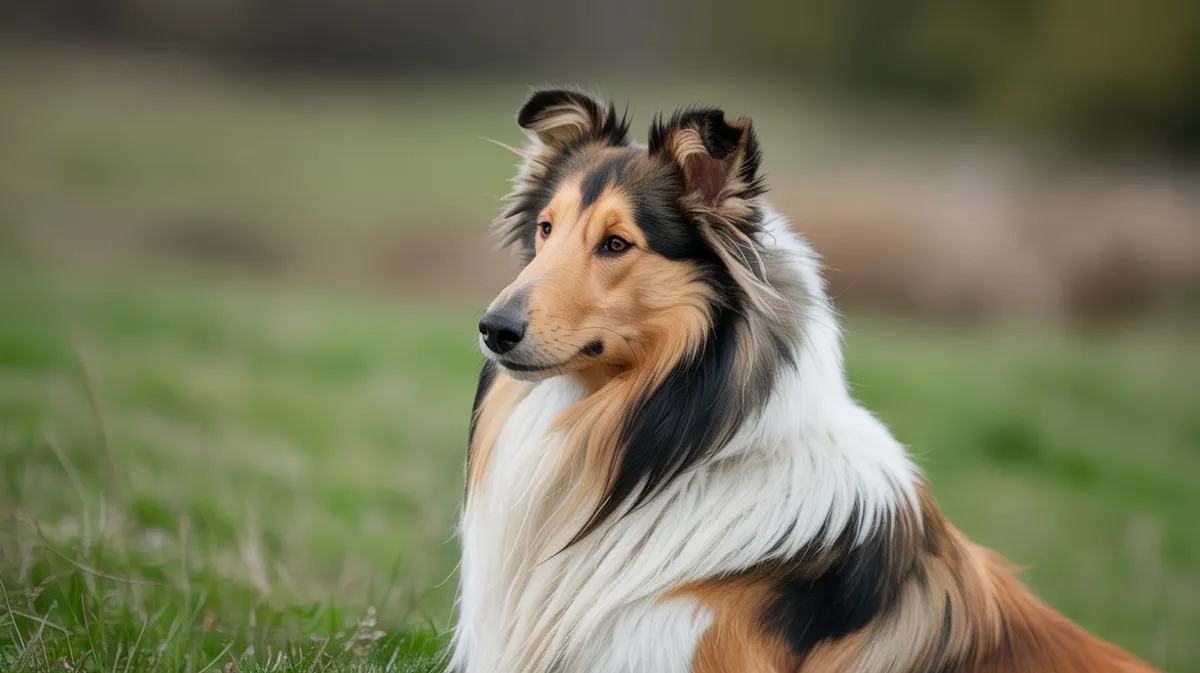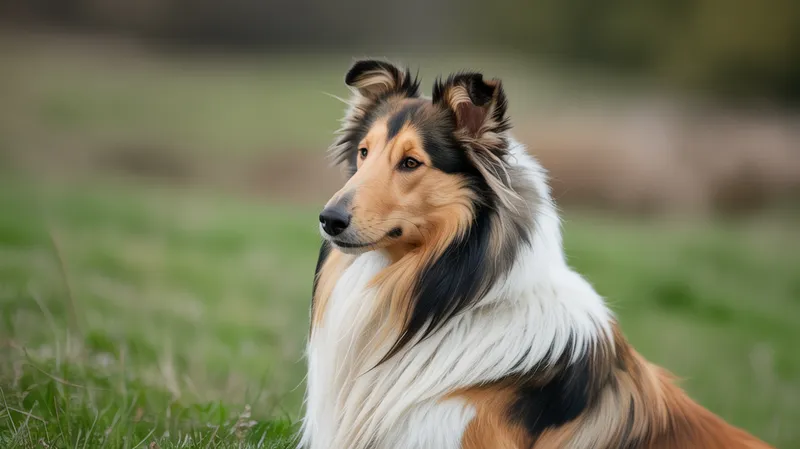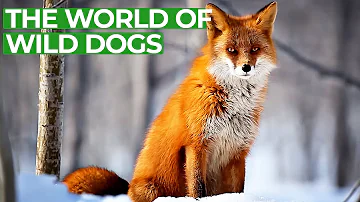
Collie
Canis lupus familiaris

Meet the Collie
The Collie is a highly intelligent and agile herding dog breed originating from Scotland and Northern England. Known for their graceful appearance, long snout, and luxurious double coat, Collies are celebrated for their loyalty and gentle temperament, making them excellent family companions. Historically bred for herding sheep, Collies are energetic and thrive in environments where they have both mental and physical stimulation. Their strong sense of duty and keen intelligence make them versatile, excelling in various canine sports and working roles.
Classification
Mammal
Habitat
Domestic environments, grasslands, and farmlands
Diet
Omnivore
Lifespan
12-14 years
Conservation
Least Concern
Weight
22-32 kg
📖Fascinating Facts
Exceptional Intelligence
Collies are consistently ranked among the smartest dog breeds, excelling in obedience and quick learning.
Herding Heritage
Originally bred to herd sheep in the rugged Scottish Highlands, Collies have a strong instinct to gather and protect livestock.
Pop Culture Icon
The Collie breed became globally recognized after the popularization of 'Lassie', a fictional Collie known for heroic rescues.
📋Detailed Description
Collies are a diverse group of herding dogs characterized by their medium size, athletic build, and keen intelligence. Adult Collies typically stand between 51–61 cm (20–24 in) at the shoulder and weigh 22–32 kg (48–70 lbs), though size can vary by breed subtype. Their wedge-shaped heads, elongated muzzles, and expressive almond-shaped eyes contribute to their alert and gentle expression. Collies possess a double coat, with outer fur that may be long and flowing (as in the Rough Collie) or short and dense (as in the Smooth Collie), providing insulation against harsh weather. Their ears are semi-erect, tipping forward when attentive, and their tails are bushy and carried low. Collies are renowned for their stamina, agility, and acute sensory perception, particularly in visual and auditory domains, which are essential for their traditional role in livestock management. Socially, Collies are highly cooperative, forming strong bonds with humans and other animals, and often displaying a pronounced desire to work as part of a team. Their herding instinct is deeply ingrained, manifesting in behaviors such as circling, stalking, and gentle nipping to guide livestock. Collies are also known for their trainability, adaptability to various environments, and generally even-tempered, affectionate nature. Reproductive maturity is typically reached by 12–18 months, with litters averaging 6–10 puppies. Lifespan ranges from 12 to 15 years, with some individuals living longer under optimal care. Their combination of physical prowess, intelligence, and sociability has made Collies not only exemplary working dogs but also cherished companions worldwide.
💡 Did you know?
Despite their elegant appearance, Collies are still used as working sheepdogs in many parts of the world today.
🔬Research & Sources
Wikipedia Summary
Collies form a distinctive type of herding dogs, including many related landraces and standardized breeds. The type originated in Scotland and Northern England. Collies are medium-sized, fairly lightly-built dogs, with pointed snouts. Many types have a distinctive white color over the shoulders. Collies are very active and agile, and most types of collies have a very strong herding instinct. Collie breeds have spread through many parts of the world, and have diversified into many varieties, sometimes mixed with other dog types.
Last Modified: 5/23/2025
🎭Behavior & Social Structure
Collies exhibit complex behavioral patterns rooted in their herding ancestry. They are highly active and require substantial daily exercise, thriving on tasks that engage both mind and body. Typical behaviors include patrolling boundaries, gathering and moving objects or animals, and responding rapidly to auditory commands or whistles. Collies are known for their problem-solving abilities and may invent games or routines if not sufficiently stimulated. Socially, they are sensitive to human emotions and often seek close proximity to family members, displaying protective but non-aggressive tendencies. Their feeding behavior is typical of domestic dogs, with a preference for regular, balanced meals; however, some Collies may exhibit food sensitivities, particularly to certain proteins or grains. Collies are generally tolerant of other dogs and livestock, though their herding drive may lead them to attempt to 'herd' children or other pets. Daily routines often include periods of high activity interspersed with rest, and Collies benefit from structured training sessions to reinforce desired behaviors.
👶Reproduction & Life Cycle
Collies are seasonally monoestrous, with females typically coming into estrus twice per year. Courtship involves play behaviors and mutual grooming, with mating usually occurring after a brief period of social bonding. The gestation period averages 63 days. Litters range from 6 to 10 puppies, though larger litters are not uncommon in some lines. Neonates are born blind and deaf, relying entirely on maternal care for warmth and nutrition. Collie mothers are attentive, providing frequent nursing and grooming. Weaning begins at 3–4 weeks, with puppies transitioning to solid food by 6–8 weeks. Early socialization is critical, as puppies rapidly develop cognitive and social skills during this period. Most breeders recommend placing puppies in new homes between 8–12 weeks of age. Collies reach sexual maturity by 12–18 months, though responsible breeding practices often delay first breeding until at least two years of age to ensure full physical and behavioral maturity.
🛡️Adaptations & Survival
Collies possess several adaptations that enhance their effectiveness as herding dogs. Their double coat insulates against cold, wet climates typical of Scotland and Northern England. The breed's keen eyesight, including a wide field of vision and sensitivity to movement, allows them to monitor and control large flocks. Acute hearing enables them to respond to distant commands, including high-pitched whistles. Their stamina and agility are supported by a lean, muscular frame and flexible joints, allowing for rapid changes in direction and speed. Behaviorally, Collies exhibit a strong instinct to control movement, using eye contact (the 'herding eye'), body positioning, and controlled nipping to direct livestock. Their intelligence and trainability are evolutionary specializations resulting from generations of selective breeding for problem-solving and responsiveness to human cues. Collies also display a high degree of social intelligence, facilitating cooperation with both humans and other dogs.
📚Research Sources
🎨Cultural Significance
Collies hold a prominent place in human culture, especially in the United Kingdom and North America. They are celebrated in literature and media, most famously as the breed of 'Lassie,' a fictional Rough Collie who became a symbol of loyalty, bravery, and intelligence. Historically, Collies were indispensable to pastoral economies, herding sheep and cattle across rugged landscapes. In folklore, they are often associated with protection, guidance, and companionship. Collies have also served as therapy and assistance dogs, search-and-rescue animals, and in competitive canine sports such as agility, obedience, and herding trials. Their image is frequently used in art, advertising, and as mascots, reflecting their enduring appeal and versatility.
🔬Recent Research & Discoveries
Recent genetic studies have elucidated the origins and diversification of Collie breeds, revealing close relationships among British herding dogs and highlighting the impact of selective breeding on health and behavior. Investigations into the MDR1 gene mutation have improved understanding of drug sensitivities in Collies and related breeds, leading to better veterinary protocols. Behavioral research has focused on the cognitive abilities of Collies, demonstrating advanced problem-solving skills and responsiveness to complex human cues. Studies on herding behavior have provided insights into the neural and genetic basis of instinctual behaviors. Conservation genetics projects are underway to maintain genetic diversity and reduce the incidence of inherited diseases. Ongoing research also explores the role of Collies in animal-assisted therapy and their adaptability to urban environments.
🎥Wildlife Videos

The Incredible Wildlife Living At Our Equator | Equator Specials
The sun shines most powerfully at the Equator, here it is able to power extraordinary life. From the large trees covering the ...
All Out Wildlife

Wildlife - The Fascinating World of Wild Animals | Full Series | Free Documentary Nature
Wildlife - The Fascinating World of Wild Animals | Wildlife Documentary Watch 'Ocean Stories - Full Series' here: ...
Free Documentary - Nature

The Baltic | Survival in a Pristine Ecosystem | Animal documentary
Welcome to "The Baltic | Survival in a Pristine Ecosystem", a captivating wildlife documentary that transports you to the serene yet ...
WILD NATURE - Nature animal documentary

WILD SIBERIA | Survival Secrets of the Frozen Wilderness | Animal documentary
Welcome to "WILD SIBERIA | Survival Secrets of the Frozen Wilderness" – where we'll explore the extraordinary survival journey ...
WILD NATURE - Nature animal documentary

Wild Canada - Nature's Untamed Beauty | Full Series | Free Documentary Nature
Wild Canada - Nature's Untamed Beauty | Wildlife Documentary Watch 'Darkwoods - Canada's Hidden Nature Reserve' here: ...
Free Documentary - Nature

Wildlife - Just Wild Dogs | Free Documentary Nature
Wildlife - Episode 7: Just Wild Dogs | Wildlife Documentary Watch 'Wildlife - Episode 8' here: https://youtu.be/kglJpB4ei8o Run ...
Free Documentary - Nature
🌍Habitat Information
The Collie typically inhabits Domestic environments, grasslands, and farmlands environments. Collies have adapted to their environments with specialized features and behaviors.
Primary Habitat:
Domestic environments, grasslands, and farmlands
More detailed habitat information will be available soon.
🛡️Conservation Status
The Collie is currently classified as Least Concern. Conservation efforts are crucial for preserving this species for future generations.
Common Threats:
- 🏠Habitat loss and fragmentation
- 🌡️Climate change impacts
- 🎯Hunting and poaching
- 🏭Human-wildlife conflict
⚠️Threats & Conservation Challenges
While Collies as a group are not threatened in terms of population, they face several challenges. Genetic bottlenecks in some show lines have led to increased prevalence of inherited disorders, such as Collie Eye Anomaly (CEA), progressive retinal atrophy (PRA), and multidrug sensitivity (MDR1 gene mutation). Overbreeding and popularity surges, particularly following media exposure, have sometimes resulted in irresponsible breeding practices. Modern lifestyles may not always provide sufficient physical and mental stimulation, leading to behavioral issues such as anxiety or destructive tendencies. Collies are also sensitive to certain medications due to the MDR1 mutation, requiring careful veterinary management. Conservation of working traits is a concern, as some lines bred primarily for appearance may lose traditional herding abilities. Population trends remain stable globally, but preservation of genetic diversity and working aptitude is an ongoing challenge for breed organizations.
🔬Scientific Classification
Scientific Name
Canis lupus familiaris
Classification Hierarchy
🔍 About Taxonomic Classification
Taxonomic classification is a hierarchical system used by scientists to classify and organize living organisms based on shared characteristics and evolutionary relationships.
The system moves from broad categories (Kingdom) to increasingly specific ones, with each animal's scientific name typically consisting of its Genus and species.
📝Community Notes
Share your observations and insights about the Collie with our community of wildlife enthusiasts.
Join Our Community
Sign in to share your observations and connect with fellow wildlife enthusiasts.
Sign In to ContributeNo community notes yet
Be the first to share your observations about the Collie!
Explore Collie
Select a tab above to learn more about this amazing animal.
📸Photo Gallery
No photos available for this animal yet.
⭐ Rate this Animal
📤Share this Animal
Love this animal? Share it with your friends!
🌟Discover More Wildlife
Continue your journey of discovery with more fascinating animals from our database
